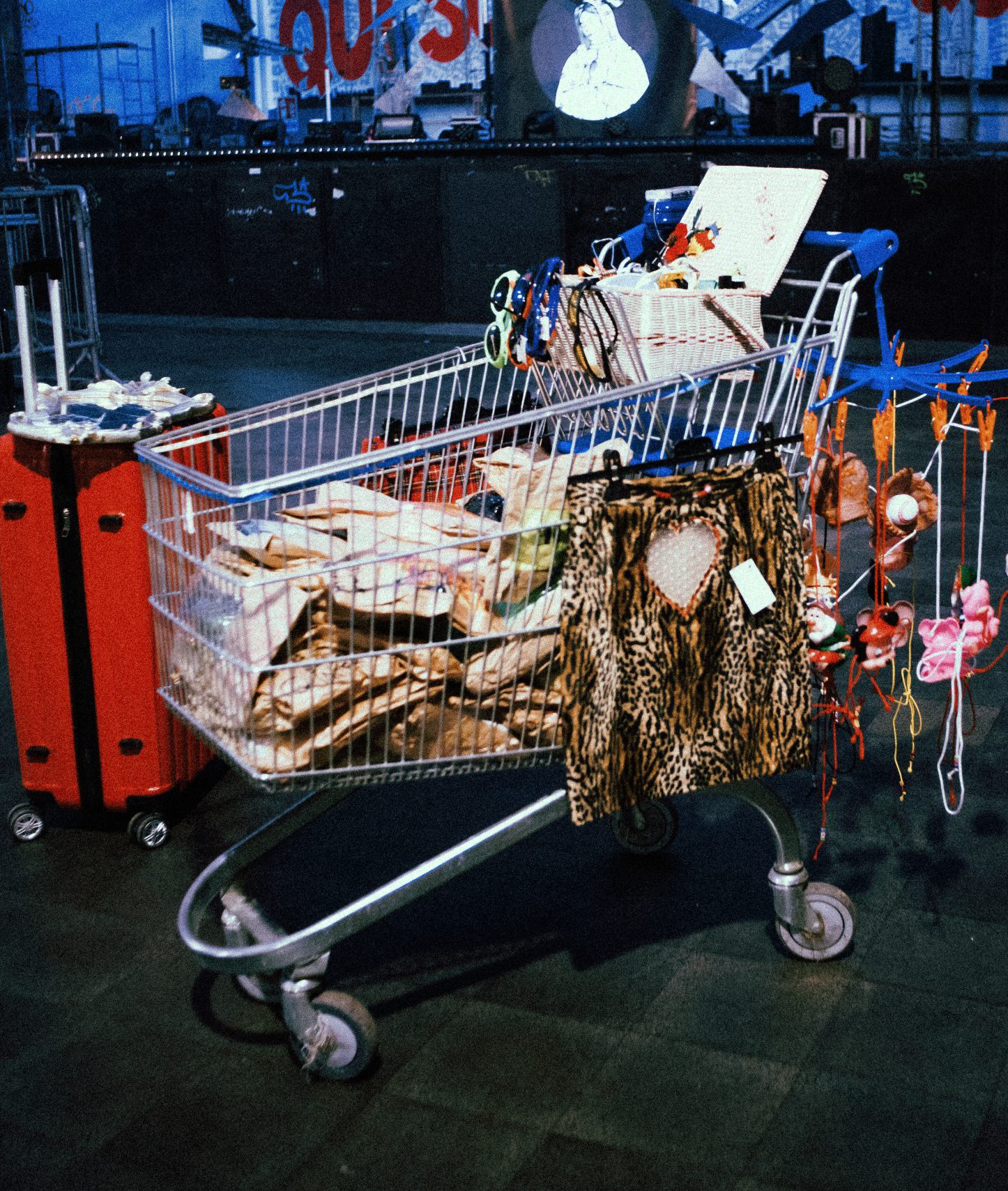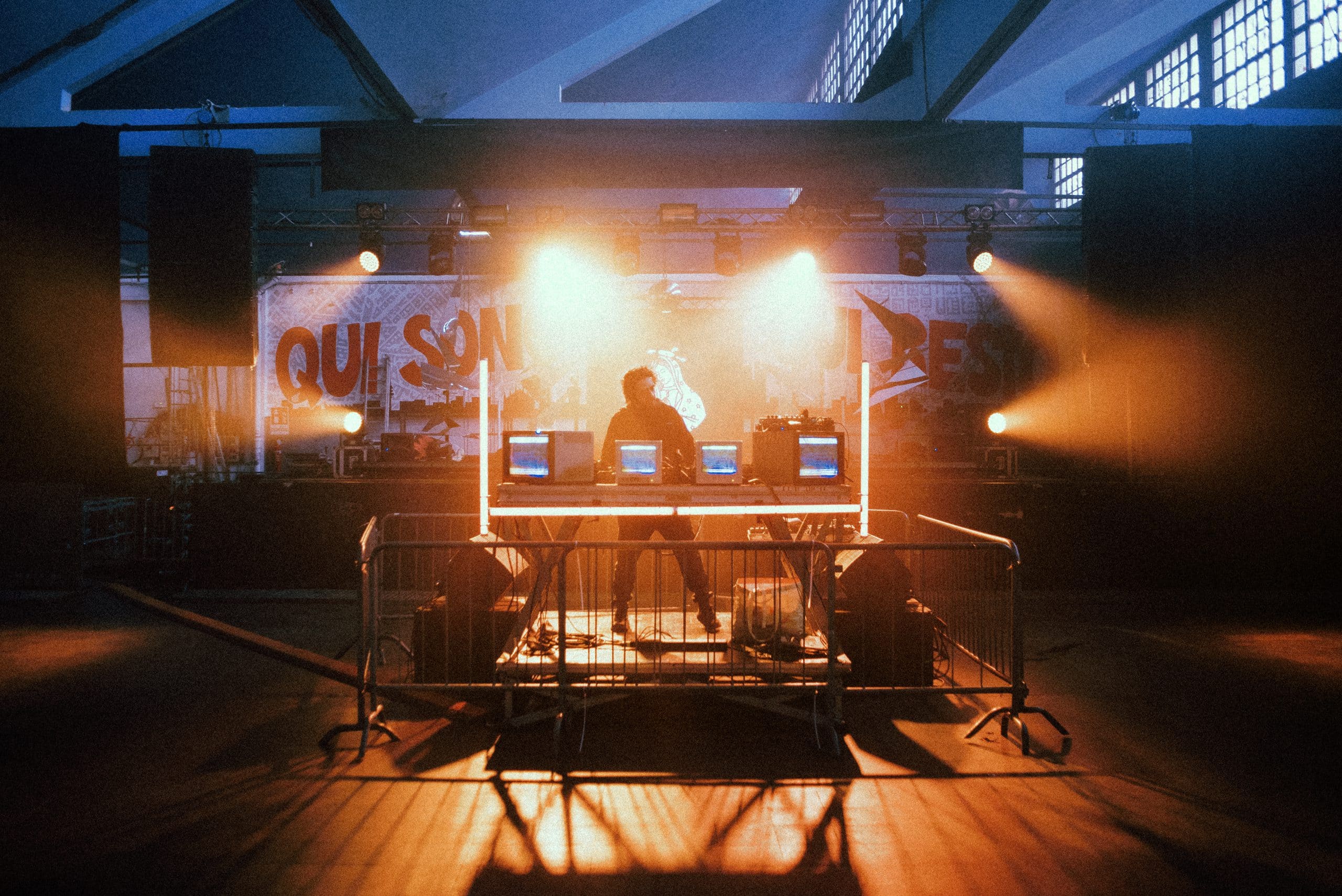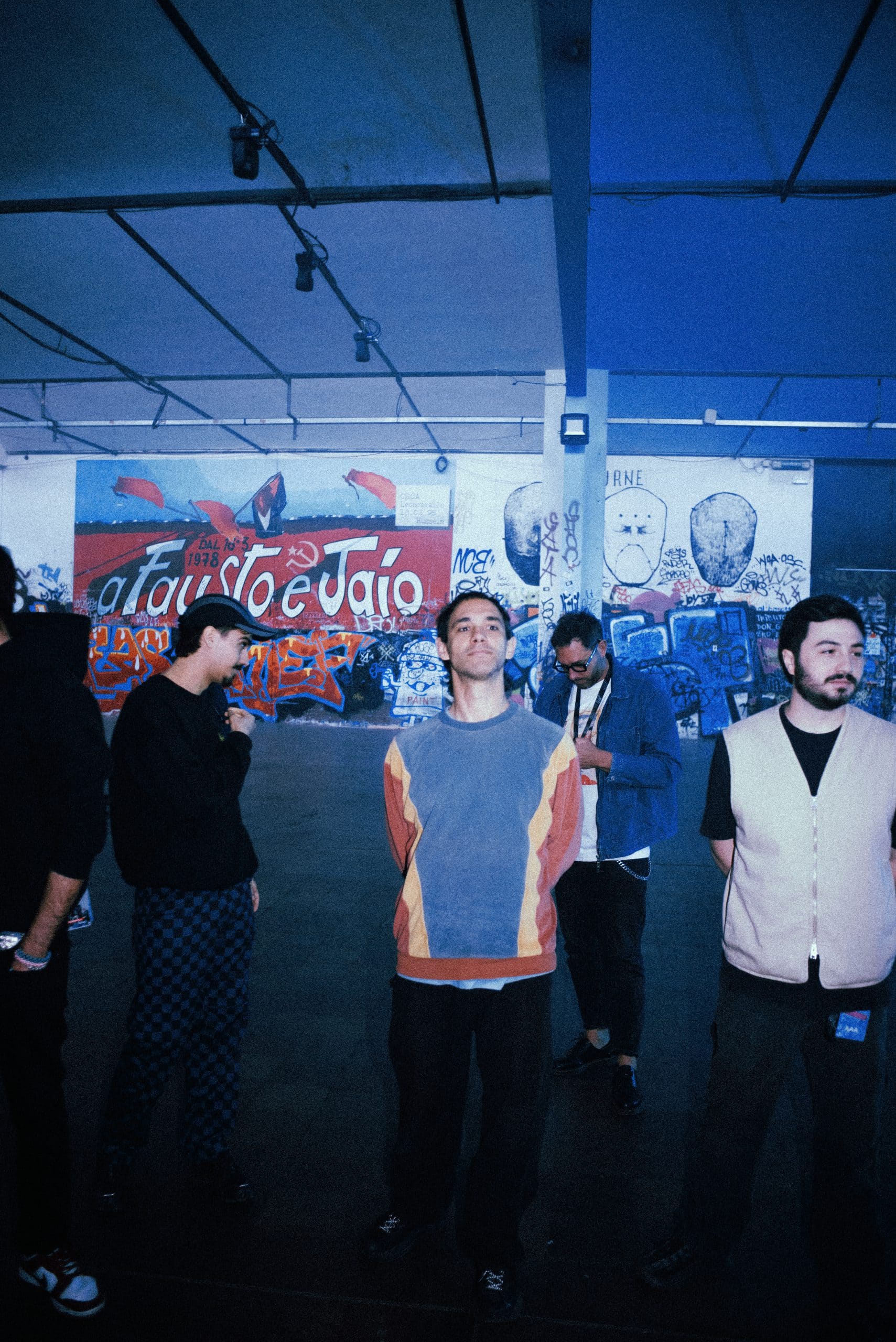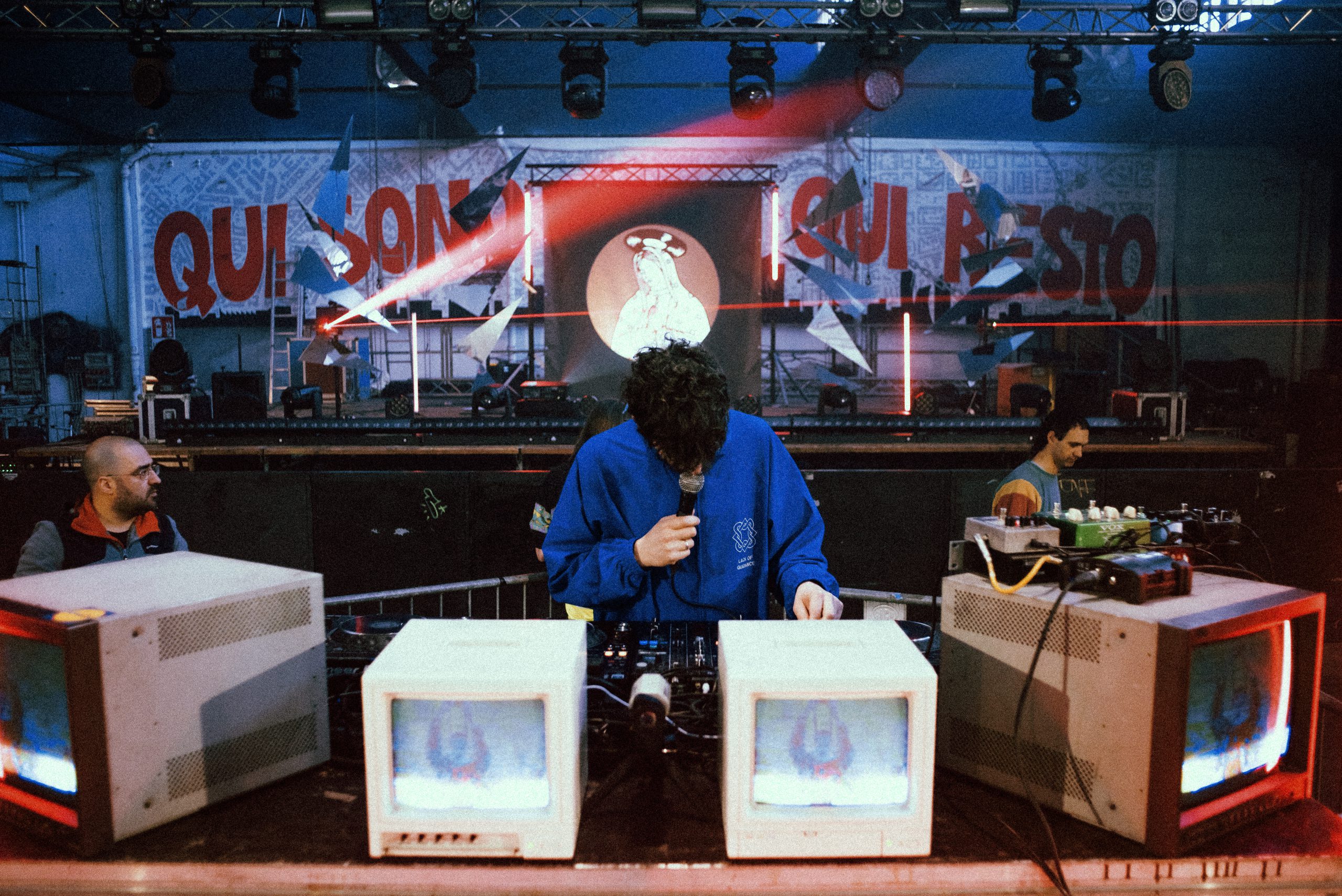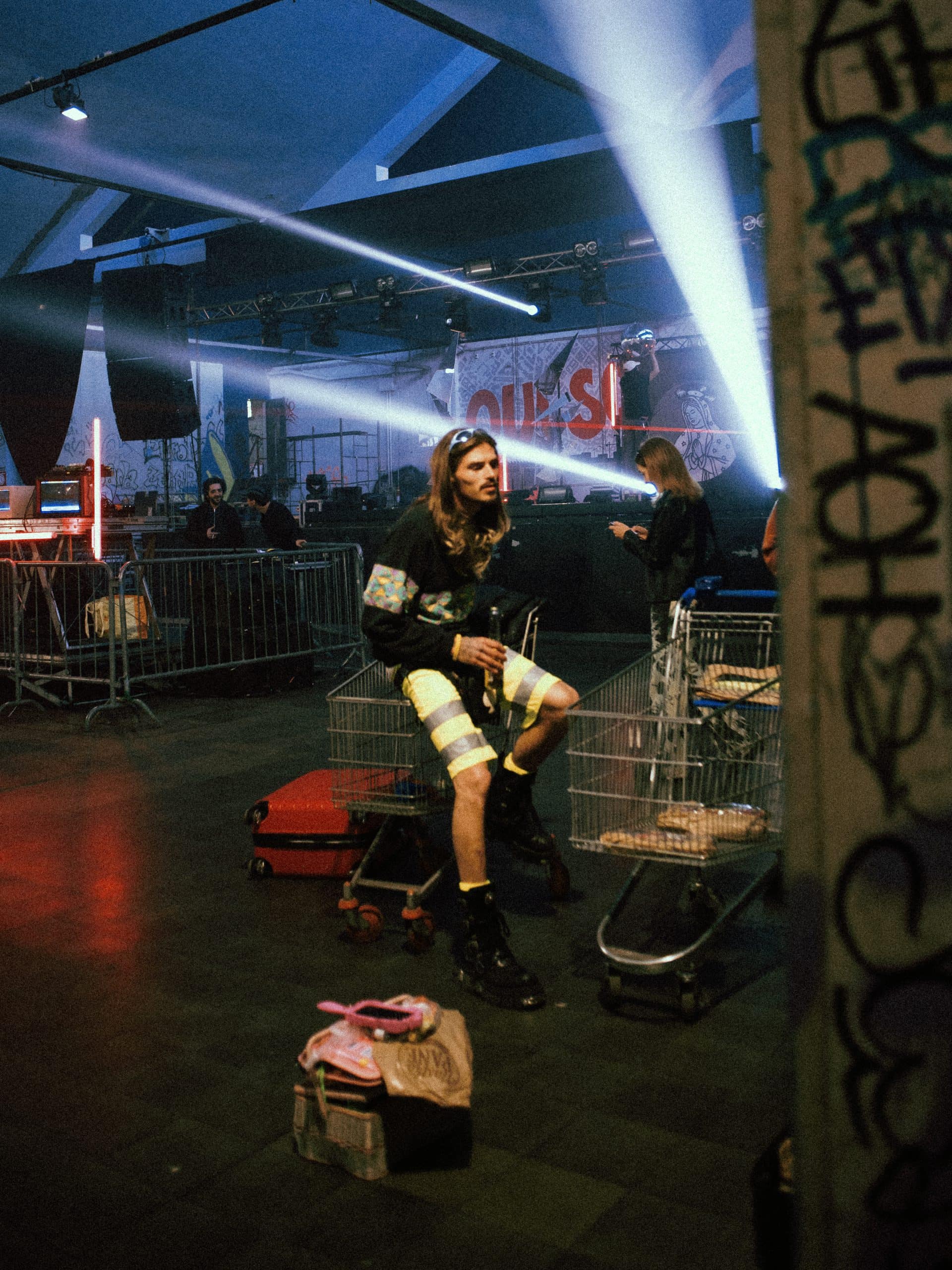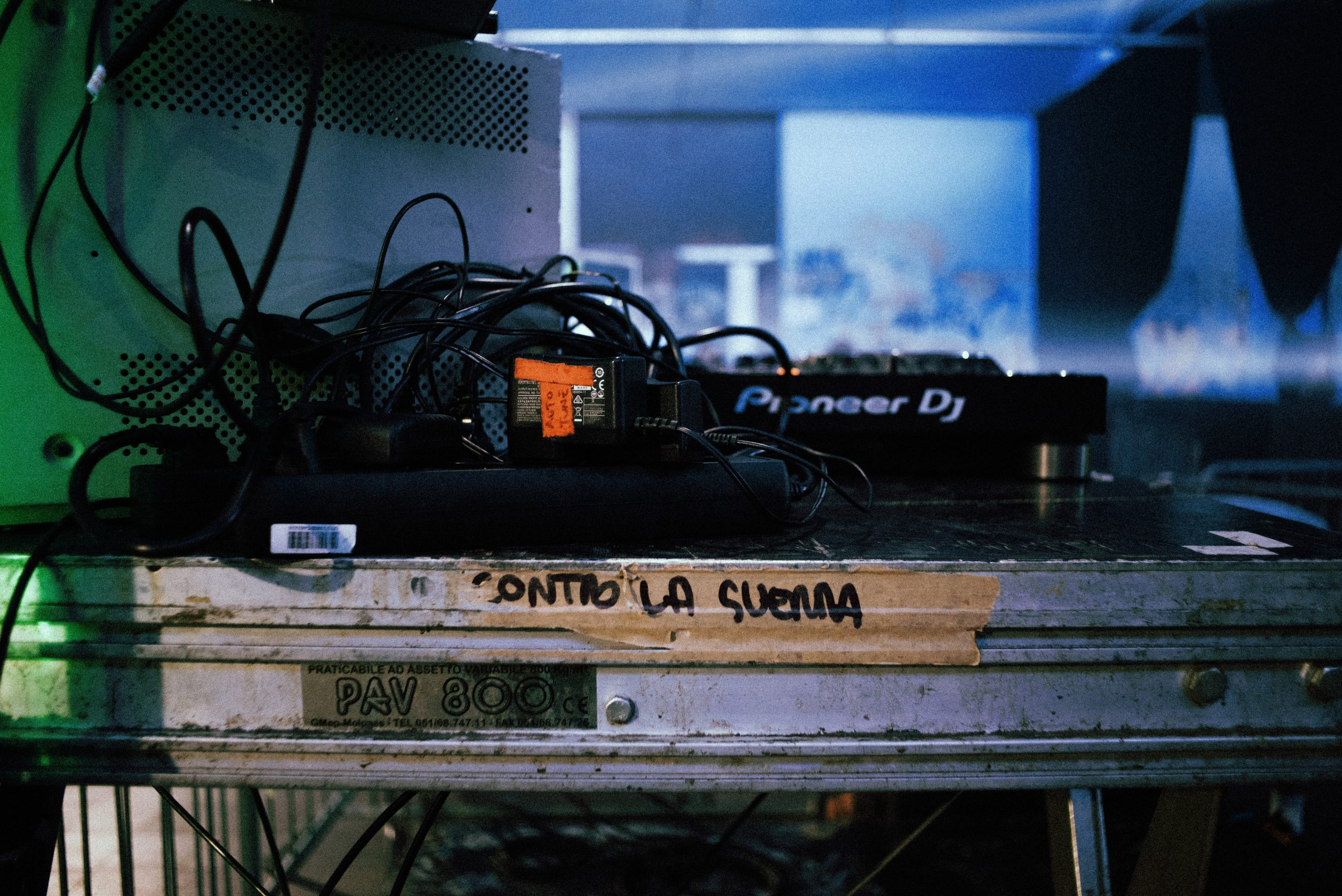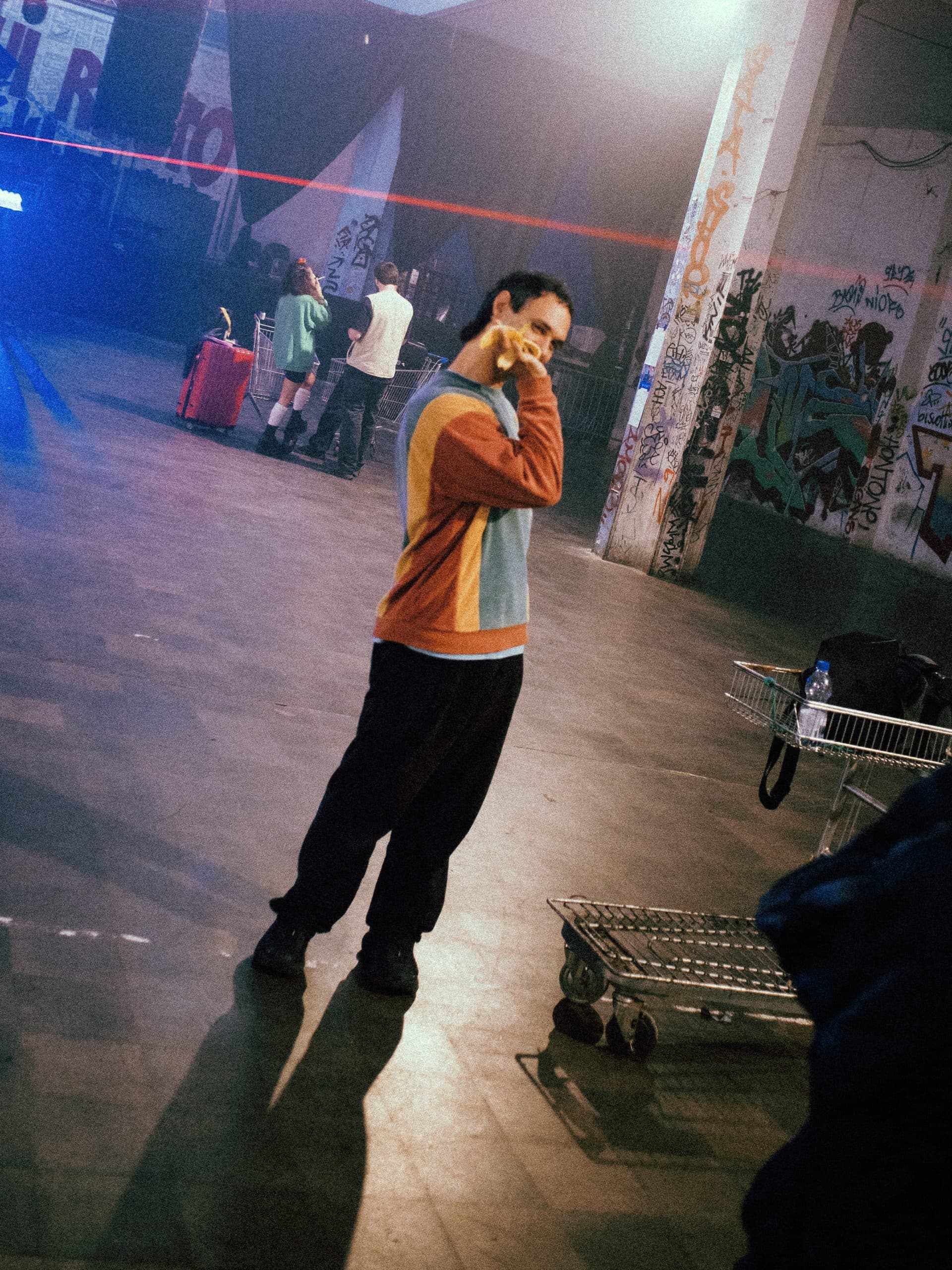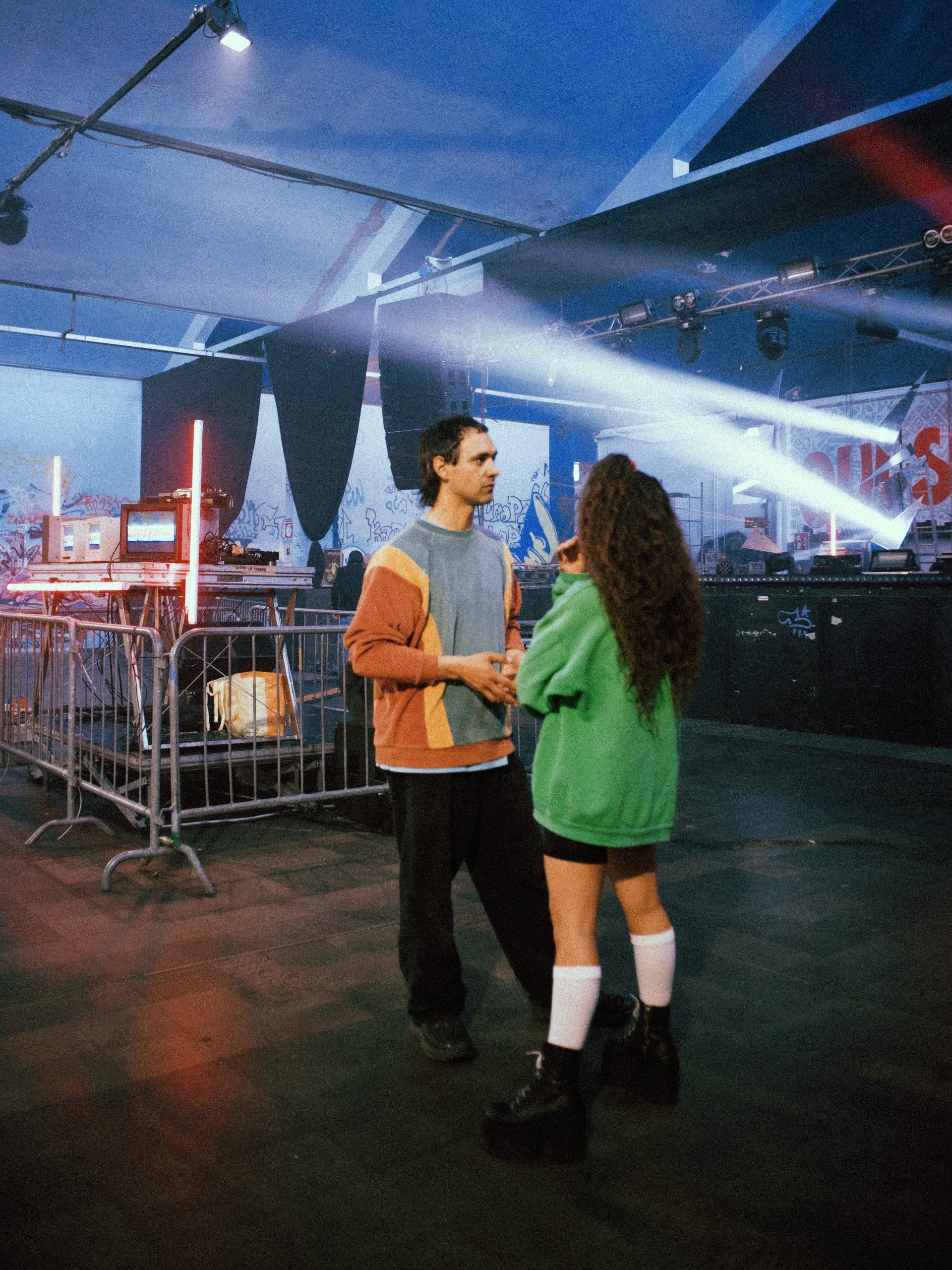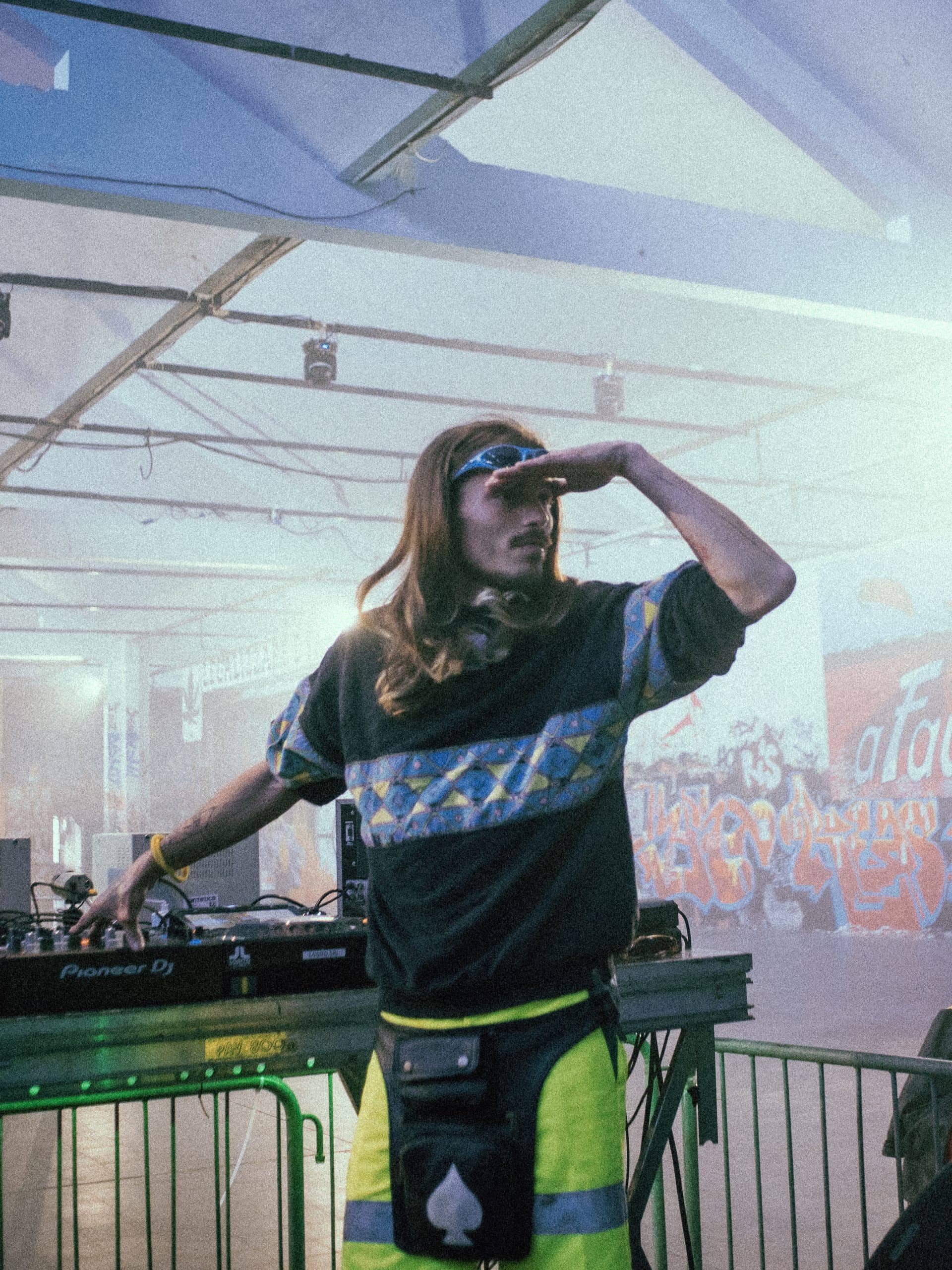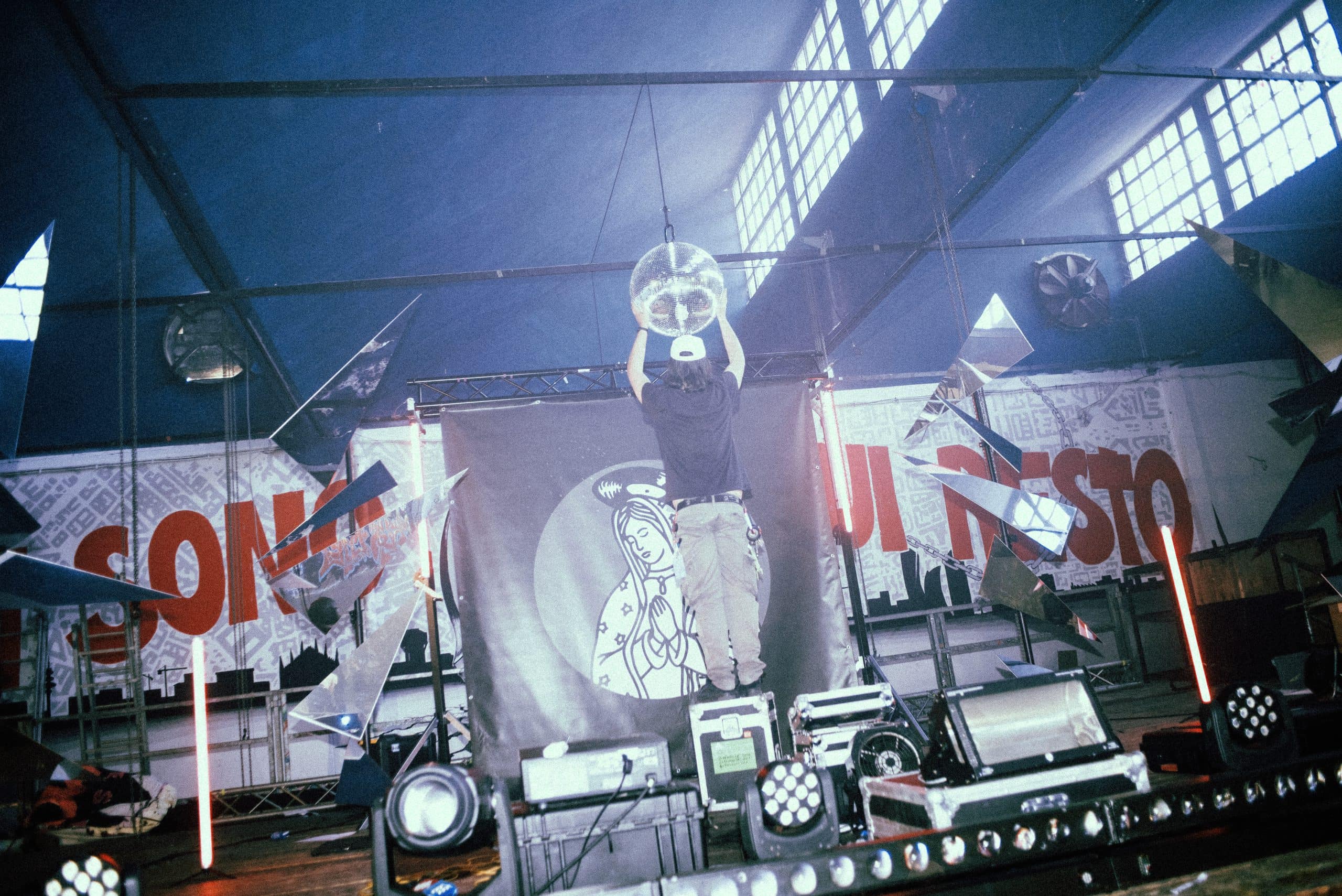Leonar, Cosmo, Enea Pascal, Foresta. Four names, one town, and an idea born out of a need: the need to create something truly their own in a place where no one expected it. Ivreatronic was born in Ivrea, a small town in Northern Italy better known for the utopian legacy of Olivetti than for its electronic music scene. And from there begins the story of a collective that turned a lack of stimulation into creative fuel, blending local roots, club culture, and a desire to reach something far bigger.
Ritamorena Zotti: Let’s start from home. How has growing up in Ivrea influenced your aesthetic and your approach to music?
Ivreatronic: Ivrea is a typical provincial town where, if you want something, you have to make it up. That pushed us to imagine, to seek new paths. We grew up under the shadow of Olivetti’s visionary and utopian legacy—now just fascinating ruins. But from those ruins, we absorbed the value of experimentation. Olivetti expressed its vision through technology, art, architecture, and a radical idea of society. At the same time, deeply rooted traditions like the carnival and the Battle of the Oranges live in our DNA—they’re all about instinct, passion, and letting go. These two souls—vision and instinct—live within us and shape our music, our events, and the way we connect with people.
RZ: How did the collective come together? What brought you together artistically?
I: Ivreatronic came out of necessity—we wanted to bring to Ivrea the kind of thing we only saw in big cities. We’re proud of where we come from, and that pride gave us the push to bring what we experienced elsewhere back home. The key elements? Three, or maybe just one: love. Love for music, for each other, for discovery. Everything stems from that.
RZ: The name Ivreatronic sounds like a statement. How much of the project is about local identity, and how much is reaching toward a wider scene?
I: Yes, at the beginning the name was a playful nod to our roots. But over time, we realized we were tapping into something much broader. We started experimenting not just with sound, but with how to structure parties, focusing on community instead of business or egos. And somehow, we built something that ties into the deeper roots of clubbing culture. Today, we feel part of an “imaginary international” of parties and collectives that share an ethos—political, in a broad sense—and a sincere, community-based, grounded approach. We truly believe that international reach comes from being deeply rooted and not trying to mimic someone else’s coolness.
RZ: Your sound is eclectic—techno, experimental, playful… What are your main influences?
I: Each of us has different influences. Our music flows freely between genres because our parties last 9–10 hours, and we swap roles in the booth. What matters most is letting the musical story unfold naturally, without a rigid direction. If there’s a common thread, it’s our attraction to music that, even when it leans conceptual, keeps its weirdness, its unique spark. We love that touch of irony that doesn’t diminish the music—it enriches it, makes it more alive and unpredictable.
RZ: Is there a thematic or emotional thread that connects your work?
I: Definitely, although it’s not about genre or style. To release something, we have to feel a personal connection, or a risk, or a bit of strangeness or irony. The less we understand what genre it is, the more comfortable we feel. And in the end—anything goes.
RZ: Your live performances are known for being unpredictable and engaging. How important is improvisation to your sets?
I: If by “live” you mean our parties—yes, we improvise a lot. Some of us plan sets more thoroughly, others work off a loose structure. But we’re always tuned in to what’s happening in the moment, to the energy in the room. We’re not interested in linear, repetitive storytelling. We’ve been bored of those cookie-cutter techno parties from the beginning. We’ve always played with musical contrasts, and over time, unpredictability became part of each set. Some parties have ended up being wonderfully bizarre and experimental. It’s not just about dancing or having fun. It’s also about questioning, playing, surprising. That’s part of what a party is, right?
RZ: You have a strong visual aesthetic at your events. How important is the visual element to your music?
I: The two are tightly connected—everything starts from the concept. Communicating our vision is essential. We try to highlight what we already have, without relying too much on gear. We use images that have represented us for a long time—like the tiger or the Madonna—not to build a brand, but because they make us feel at home wherever we go. More than a strong “image,” we like to think of every party as a home to decorate. And we try to do it in a way that feels both welcoming and refined: a comfy couch for sipping wine, a big living room where we can play together, with warm light making everyone feel good. On tour, we collaborated with SINTETICA, a talented collective from Turin who brought this vision to life beautifully.
RZ: What’s the most memorable performance you’ve had—and why?
I: You used a magic word: performance. Lately, we’ve realized that we’re not really “performing.” At least not mainly. We’re living parties with other people, in specific spaces. That means it’s not just up to us to make a night memorable. It’s the crowd (how open, energized, or… otherwise they are), the venue (well-run or chaotic, beautiful or not), the staff, the tech setup, and so on. It’s not really about performance—it’s about alchemy. And alchemy isn’t measurable. It’s not a number you can rank. There are different types of alchemy, each unique and incomparable. Sorry for the rant, but yeah—it’s not the set, it’s the synergy.
RZ: How do you see the Italian electronic scene today? Do you feel part of a broader network or more like outsiders?
I: In some ways, we’re definitely outsiders—especially musically. We’re aliens compared to your average club night, and thank god for that. But we do know and love some collectives that share our values, artistically and politically. Groups like Buka in Milan, Tropicantesimo in Rome, Mentalità in Bologna—we feel a real kinship with them.
RZ: Have you collaborated with artists outside the collective? Anyone you’d love to work with?
I: We’ve been lucky to build strong creative bonds with artists and collectives over the years. One big one is Tropicantesimo, our brothers and sisters in Rome. Artists like Hugo Sanchez, Lola Kola, and Igino have already released (or will soon release) music on our label. That said, collaborations are always ongoing, and we’ve got new releases planned with artists who’ll soon be part of this journey.
RZ: What does the future look like for the collective? Are you aiming for a sonic or conceptual evolution?
I: It’s more about focusing on the present. We live in a world obsessed with the future, and that creates stress—it often stops us from surrendering to the intensity of what we’re experiencing right now. Evolution is part of the present moment; it’s born from curiosity, from what we hear, what happens to us, what we discover. Real vision comes from our deep urge to share that’s been with us since day one, and it’s not going anywhere.
RZ: If you had to describe Ivreatronic with an image or a sensation, what would it be?
I: You know when you get home after a long, chaotic day and finally put on your sweatpants?
That.
Or when you crack open a cold beer after working out?
That.
Or when you’re making love?
That.
